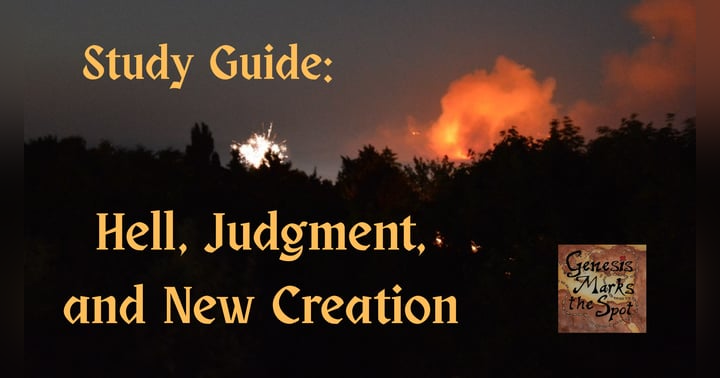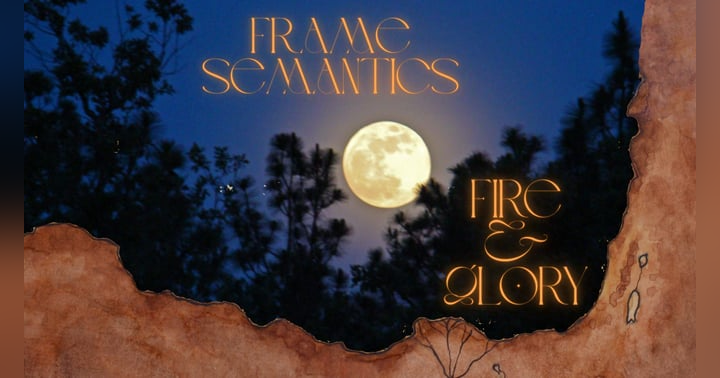Does Science Falsify the Tower of Babel?

A Response to a Common Critique
So, a common critique from skeptics is that the fields of linguistics and anthropology “completely falsify” the idea that the Babel story in Genesis could have any historical validity. That’s a big claim.
But as with many big claims, the devil (or perhaps the details) is in the definitions, especially when we’re talking about loaded words like “history.” It seems like such a simple word, doesn't it? So obvious what we mean by history, right??
Not so fast! So, let’s unpack this biblical theology style.
First Things First: What Do We Mean by "History"?
If you’re expecting Genesis 1–11 to read like a modern historical documentary complete with timestamped footage, unbiased reporting, and a scholarly bibliography, then, wellllll, yes, you’re in for some problems here with this story. That doesn't actually bother me, though, because...
...here’s the thing: ancient writers didn’t write history the way we do. And that’s not a problem. That’s just... how they wrote.
Point 1: Ancient History ≠ Modern History
In the modern West, we value “unbiased” historical accounts (although, let’s be honest, true objectivity is a completely and utter impossibility).
In the ancient world, history was always inherently purposeful and theological. Writers weren’t just listing events, they were shaping memory, memorializing rulers, and embedding spiritual meaning into what they were recording.
Didn't they care about data?? Look, no one's saying that they didn't. Ancient records often align impressively with archaeology and with each other. But they also compressed time, rearranged events, and emphasized what mattered to them, not what 21st-century readers might expect. Then and now, writing comes with an agenda, and that's actually okay. The thing is that we want to try to understand what that agenda is, and once we do, clarity follows.
Point 2: Genre Matters—Genesis 1–11 Is "Primeval History"
Even within the Bible, not all history is the same kind of history.
Genesis 1–11 is what's often called primeval history, which is a narrative that covers cosmic and human beginnings. These are stories that happen before we meet any biblical authors interacting with the characters.
It’s not like Samuel or the Gospels. It’s not boots-on-the-ground reporting. We might think of it more like theological framing for the human story, set in a symbolic and ancient mode of storytelling.
Point 3: Biblical Writers Weren’t Writing World History
The human biblical authors knew nothing of the wider world. Genesis isn’t trying to record the history of all human languages or global population movements. The authors didn’t have Google Earth or DNA migration maps. They wrote within their world, about their world, and for their people.
So expecting them to offer a fully global anthropological breakdown is like asking Harry Potter to provide an accurate account of the history of the Muggle world. There might be alignment, but it's simply not going to care about the details because that's not the point.
Point 4: Babel Was a Real Place—It's Called...Mesopotamia
Yes, the Tower of Babel probably references a real site in Mesopotamia (most likely Babylon’s ziggurat). But that doesn't mean it has to be the moment all world languages emerged. It's telling a story to and about people in a certain context.
Because the story is set in a Mesopotamian framework that is likely written during or after exile, the author is using that world’s imagery to communicate a theological message that mattered to the people right then and there.
Point 5: Narrative Makes a Theological Point (Not a Science Textbook)
The Babel story sets up a powerful arc: humanity’s division, leading to Pentecost’s unity.
The Bible’s job isn’t to correct modern anthropology, it’s to frame the spiritual narrative of God’s work in the world. This is about identity. The New Testament writers didn’t feel the need to correct Babel with linguistic studies. They didn't know what we know in modern linguistics. They were connecting to the sacred story.
We would expect NT writers to explain things in relation to the OT text and understanding of the people as to their past. We do not need the NT writers to CORRECT any science or history, because the NT was written to NT people.
Point 6: The Bible Is For Us, But It Wasn’t Written To Us
This one’s key.
Modern readers often impose our questions on an ancient text. But the Bible doesn’t owe us answers about evolutionary linguistics or the Indo-European language family tree.
Instead, it speaks from within an ancient worldview.
Point 7: Let the Bible Be What It Is
Or, as the late Dr. Michael Heiser would put it (slightly paraphrasing):
“Let the Bible be what it is—an ancient text, written in a particular context, offering divine revelation, not a modern science or history book.”
Trying to make it something else not only misreads the Bible, but ironically, can rob it of its true power and message.
Don’t Panic—Biblical Theology to the Rescue!
So no, linguistics and anthropology haven’t “falsified” the Babel story. (Actually, archaeology and textual studies have created a space for us to understand it better, within the history of Mesopotamia.) Thinking about the Bible and modern science together should hopefully remind us that we must read the Bible as it was meant to be read. It's just not a modern encyclopedia, it is a sacred story that was shaped in its own literary, cultural, and theological context.








